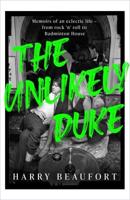Publisher's Synopsis
Excerpt from English Writers, Vol. 1: Part II., From the Conquest to Chaucer
Canterbury he rebuilt the cathedral, was high in favour of William the Conqueror, and during part of the reign of William Rufus was also chief director of affairs in Church and State. Lanfranc was born, in 1005, at Pavia, son of a keeper of the public archives. He studied at Bologna, where he practised as an advocate, removed to France, and was famous as a teacher at Avranches. On his way from Avranches to Rouen, in 1041, he fell among thieves, was robbed in a forest near the abbey of Bec, tied to a tree, and abandoned. During a day and night of solitary peril he devoted himself to God, and, when released by travellers next day, asked the name of the nearest monastery. He was directed to the abbey of Bec, then newly founded by the unlettered Abbot Herluin, one of a noble Danish family, who had been bred to arms, had left the world, and was in much need of a good scholar in his abbey. To Bec, therefore, Lanfranc retired as a monk; in three years he became prior there, Herluin still living as abbot, and opened a school which he made famous by his teaching. Duke William made Prior Lanfranc one of his Counsellors of State, and when he obtained for William the permission of the Pope to marry his own cousin, on condition that he built a monastery, the monastery, dedicated to St. Stephen, was built at Caen, and Lanfranc was made its abbot.
About the Publisher
Forgotten Books publishes hundreds of thousands of rare and classic books. Find more at www.forgottenbooks.com
This book is a reproduction of an important historical work. Forgotten Books uses state-of-the-art technology to digitally reconstruct the work, preserving the original format whilst repairing imperfections present in the aged copy. In rare cases, an imperfection in the original, such as a blemish or missing page, may be replicated in our edition. We do, however, repair the vast majority of imperfections successfully; any imperfections that remain are intentionally left to preserve the state of such historical works.








